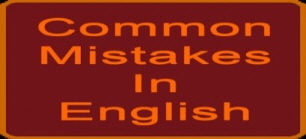
   |
[Essay/영작] (CM-091) "Very and Too", "Very and Much", "Too much for Very much"
최고관리자 | 19-06-09 01:40

395. Very and Too
(a) Very
(X) It's too hot in Rome in the summer.
(O) It's very hot in Rome in the summer.
(b) Too
(X) It's now very hot to play football.
(O) It's now too hot to play football.
Very simply makes the adjective or adverb stronger.
Too means more than enough, or so much that something else happens as a result.
396. Very and Much
(a) Very
(X) He's a much strong man.
(O) He's a very strong man.
(X) It's a much interesting book.
(O) It's a very interesting book.
(b) Much
(X) He's very stronger than I am.
(O) He's much stronger than I am.
Use very with adjectives and adverbs in the positive, and with present participles used as adjectives like interesting.
Use much with comparatives.
397. Too much for Very much
(X) She likes the cinema too much.
(O) She likes the cinema very much.
(X) He's too much stronger than I am.
(O) He's very much stronger than I am.
Use very much instead of much for greater emphasis.
Too much denotes an excessive quantity or degree. / She ate too much, and felt ill.
   |




